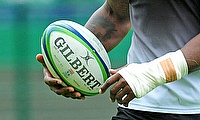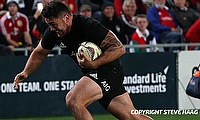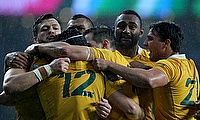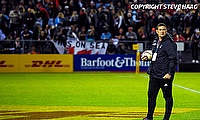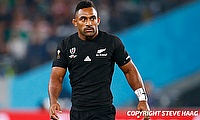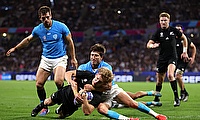Super Rugby: Storylines at the mid-point of the Season
Whilst some teams have played nine, and some teams have played eight fixture thus far in the current Super Rugby campaign, this week marks the closest we’ll get to a midway point of the season.
With that in mind, let’s re-visit the quad-continental tournament and pick out the main storylines worth following as the SANZAAR franchises begin play on the back-nine of their 2017 seasons.
Contraction Looms Large
It would be impossible to open any discussion on the current Super Rugby season without addressing the elephant in the room: the looming contraction of the tournament’s current format.
On 9th April 2017, after weeks of rumours and whispers, governing body SANZAAR confirmed that the tournament would return to its previous 15-team structure beginning from next season (2018).
To accommodate the shrinking of the tournament, SANZAAR also announced that two of South Africa’s six franchises and one of Australia’s five would be scrapped, although the decision regarding which teams would be cut would be left down to the country’s respective unions.
Unsurprisingly, the announcement –whilst seemingly inevitable – was met with a significant degree of controversy with press reports indicating that either the Western Force or the Melbourne Rebels from Australia would be cut whilst in South Africa, the axe is expected to fall on the Southern Kings and the Cheetahs. The Australian Rugby Union have since declined to meet with the Western Force who launched legal action against the Australian Rugby Union last month
For most observers it is clear the current competition format with eighteen teams competing across four continents and eight separate time zones was unsustainable and reform had to come in one shape or another.
And whilst it will be gut-wrenchingly painful to see three unique franchises – complete with fanbase, history and brand – wiped from existence sometime in the next six months, it would appear this is the right decision to preserve the future of the competition.
Despite the somewhat-dubious records of the Argentinean and Japanese franchises since joining Super Rugby, the establishment of franchises in two of the quickest growing rugby markets is integral to a continued global expansion of the sport.
Meanwhile the silver lining for Australian and South African rugby is that with eight remaining franchises between them, both unions will ideally be able to re-negotiate and redistribute the players from the scrapped franchises to bolster their existing sides, boosting the competiveness of the country’s representatives, much-needed given the current stranglehold New Zealand has on the tournament.
Lost in Tokyo (and Singapore)
With the upcoming 2019 Japanese World Cup earmarking the first time the tournament has ever been hosted on Asian soil and the Cherry Blossoms now firmly entrenched in the upper-echelon of international rugby, removing the nascent Sunwolves franchise from Japan would have been a politically suicidal move for global rugby.
However, it is not hard to sympathise with the arguments of Western Force/Rebels/Cheetahs/Southern Kings fans who have a very credible argument in stating the Sunwolves are incredibly lucky to have survived SANZAAR’s cull.
With only a solitary 21-20 win over the Bulls last month to their name, the Sunwolves are firmly rooted at the bottom of the South African Conference, four points adrift of the Cheetahs.
This coming off the back of a miserable maiden campaign in 2016 which saw the Sunwolves finish with only a single win and nine points as the worst-performing team in the entire competition. Any expectation that the Japanese franchise would constitute a significantly more competitive team this season has been comprehensively dashed.
One shining light in an otherwise cloudy season has been the play of Kenki Fukuoka, the diminutive winger who has represented both the national Japanese 15-man and Sevens team and who figures to be one of the poster boys of the Cherry Blossoms home World Cup campaign in two years’ time.
The other encouraging news is that national team stalwart and captain Michael Leitch will join up with Fukuoka from the Chiefs next season as the franchise and national team continue to encourage the amalgamation of the two teams as close as possible.
Unfortunately for Sunwolves fans however, they still have the rest of this season to play.
An Irresistible Crusade
With an unblemished record of nine wins from nine in the season’s first half it is the Crusaders who are leading the charge to claim ultimate glory in this year’s competition.
After a disappointing 2016 season saw the Canterbury franchise bounced out of the quarter-finals by the Lions, the Crusaders have lead an unstoppable charge to the top of the standings on 41 points with the team both imperious in attack (2nd in points scored) and defence (2nd least points conceded).
Led by the ever-impressive All Black duo of Kieran Read and Sam Whitelock, the Crusaders have also been buoyed by the emergence of fly-half Richie Mo’unga and George Bridge, both of whom have been tipped to receive international honours, potentially as soon as June.
With one game less played, the Hurricanes remain hot on their countrymen’s heels. The Wellington franchise have recorded an impressive seven wins out of their first eight and lead the tournament in both points scored and fewest points conceded and currently sit third in the overall standings on 33 points.
Standing between them are the Chiefs who hold 37 points with eight wins out of nine and who are also well-placed to mount a long run into the competition’s latter stages in July and August.
Outside of New Zealand however, genuine title-contenders are scarce. The Brumbies on a paltry 18 points are Australia’s highest-ranked team, a damning indictment of how Australian rugby has faltered in recent years. The strongest contender to Kiwi domination instead comes from South Africa where last year’s losing finalists the Lions are neck and neck with the Chiefs, also sitting on 37 points with eight wins out of nine.
Bish Bok Bosch
Finally, whilst George Bridge (Crusaders), Vince Aso (Hurricanes) and SP Marais (Stormers) have all caught the eye this season, one has to imagine that any hypothetical breakthrough player of the season award has to go to Curwin Bosch of the Sharks.
At only 19 years of age, Bosch has made a stunning start to life with the Durban-based club. A poised positional players with an elite ability to read the game and counter-attack, Bosch has featured at both full-back and fly-half for the Sharks this season and leads the entire competition with 108 points in only 9 appearances.
Bosch’s domestic form hasn’t gone unnoticed however with the Port Elizabeth youngster being called up to Allister Coetzee’s Springbok training camps with many of the South African media clamouring for Bosch to get a chance to start at fly-half in their international series with France.
To do what Bosch has done at such a young age is exciting precisely because of the long future ahead of him which features a potentially limitless ceiling. In Bosch, one figures Super Rugby has unearthed the latest gem in a forever-glittering crown of talented Southern Hemisphere players who will take the international game by storm.

